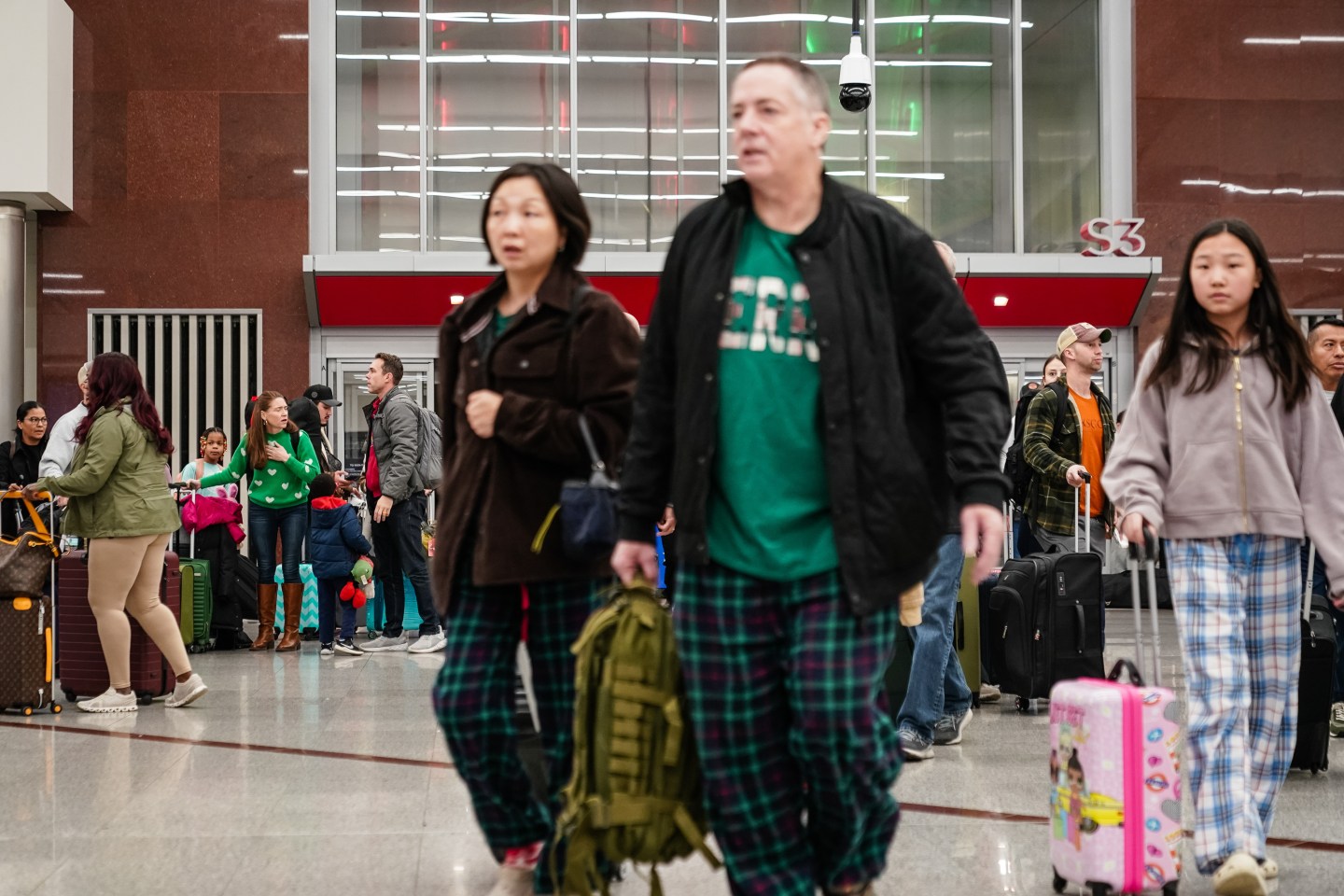In 1998, after years of struggling to have a child on their own, Doug Hardy and his wife, Roselyn Romberg, adopted three siblings from a Russian orphanage. The couple were not alone in their quest. The collapse of the Soviet Union earlier in the decade and the subsequent economic crisis in the region had forced many Russians to put their children up for adoption. Reports of children suffering in Russian orphanages struck a chord in the heart of many American families, some who preferred to adopt infants. But for Doug and Roselyn, then in their early forties, adopting older children (ages 8, 6, and 3) was an opportunity to finally expand their family later in life. The reality, however, ended up being much less idyllic. “Twenty years of chaos followed,” Doug told Fortune.
According to Doug, each of the siblings suffered from emotional and psychological distress as a result of trauma they experienced as children before being placed in the orphanage. The couple sought help from “more than 50 different therapists and 20 different schools,” including “reluctantly” putting the children in residential therapeutic boarding schools, Doug said. But those interventions only deepened the resentment that the children had toward their parents.
“We all felt like we got sent away to be dealt with by somebody else,” said Emilie Hardy, 31, the eldest child. “I was frustrated. I was angry. I had a lot of resentment and a lot of anger toward the choices they had made for us as parents.”
The Hardy family spent many years in varying degrees of estrangement. Researchers at Cornell University have found that 27% of Americans 18 and older have cut off contact with a family member. Experts say estrangement is a phenomenon that often goes hand in hand with accusations and experiences of abuse, mistreatment, or incompatibility.
“Part of the bitterness was that I wanted to be with my family,” said Emilie. “We had always been in therapy and for years took medications.” According to Doug, his two sons had equally difficult experiences, often living with friends, holding odd jobs, and keeping in touch with their adoptive parents only sporadically.
So when the COVID-19 pandemic hit, Doug decided to try a new approach to connecting with his fractured family: Zoom meetings. “We suddenly had a safe way to communicate and a safe excuse to do it,” he said. Part of what prompted the initial round of Zoom video calls was the release of one of Doug’s sons from a New Hampshire jail in the summer of 2020. The initial sessions, however, were fraught with tensions from the past. “It’s really hard to rehash the past and talk about it,” Emilie said of the early Zoom calls. “We’ve tried, and it’s been difficult.”
In a December 2020 interview about family estrangement, Karl Pillemer, a professor of human development at Cornell University and author of Fault Lines: Fractured Families and How to Mend Them, said that while there is an initial relief that comes with eliminating family conflict through estrangement, many people who attempt reconciliation do it for themselves, not for the other family member.
“They felt like it was a weight off their shoulders; they were avoiding anticipated regret,” he said. Pillemer, whose research has focused on family reconciliation, said that even those who say they are satisfied with the estrangement may still feel a “longing for a restoration of the relationship.”
Pillemer’s work eventually made its way to the Hardy family. After reading his book, Roselyn suggested the family try agreeing to disagree. The Zoom calls had taken place in the pre-vaccine days of the pandemic, after a few of the couple’s friends had succumbed to the virus. Those deaths influenced Doug’s thinking about how to engage with his children. “We can’t agree about the past, but we can focus on the future if you want to be a family,” he told them.
That future was starting to look increasingly bright for the siblings. Each of them had their own good news to share, creating the necessary balm for establishing rapport. One son got married and had a baby—the family’s first grandchild. The other son works as a heavy equipment mechanic. And Emilie, now a registered nurse, shared her own success stories about work and school.
The Zoom meetings have now migrated offline to in-person gatherings, something the Hardy family could barely imagine happening in the past. “Maybe it’s being 65, maybe it’s seeing so many people die, maybe it’s seeing our own distress at what’s happened in this country in the past four years,” said Doug, “but we are taking a very serious look at how we are spending our lives. We’re trying to spend more time on things that are good for the world and good for us.”
For Emilie, the joy of reconnection has been found in simple things like “laughing, cleaning up dishes after dinner, celebrating birthdays together,” she said. “It’s no longer just a phone call—it’s going for a walk, opening gifts. We just had a baby nephew in March, and everyone was holding the baby. The physical space was different, and that’s what’s important.”
And perhaps another reason for the family to come together again is the arrival of the family’s second grandchild. Emilie’s baby is due in December, and that has made her regard the world in more forgiving terms: “It makes you think about how the world is a big place and maybe our problems are not the only problems, that maybe it’s time to move on.”











